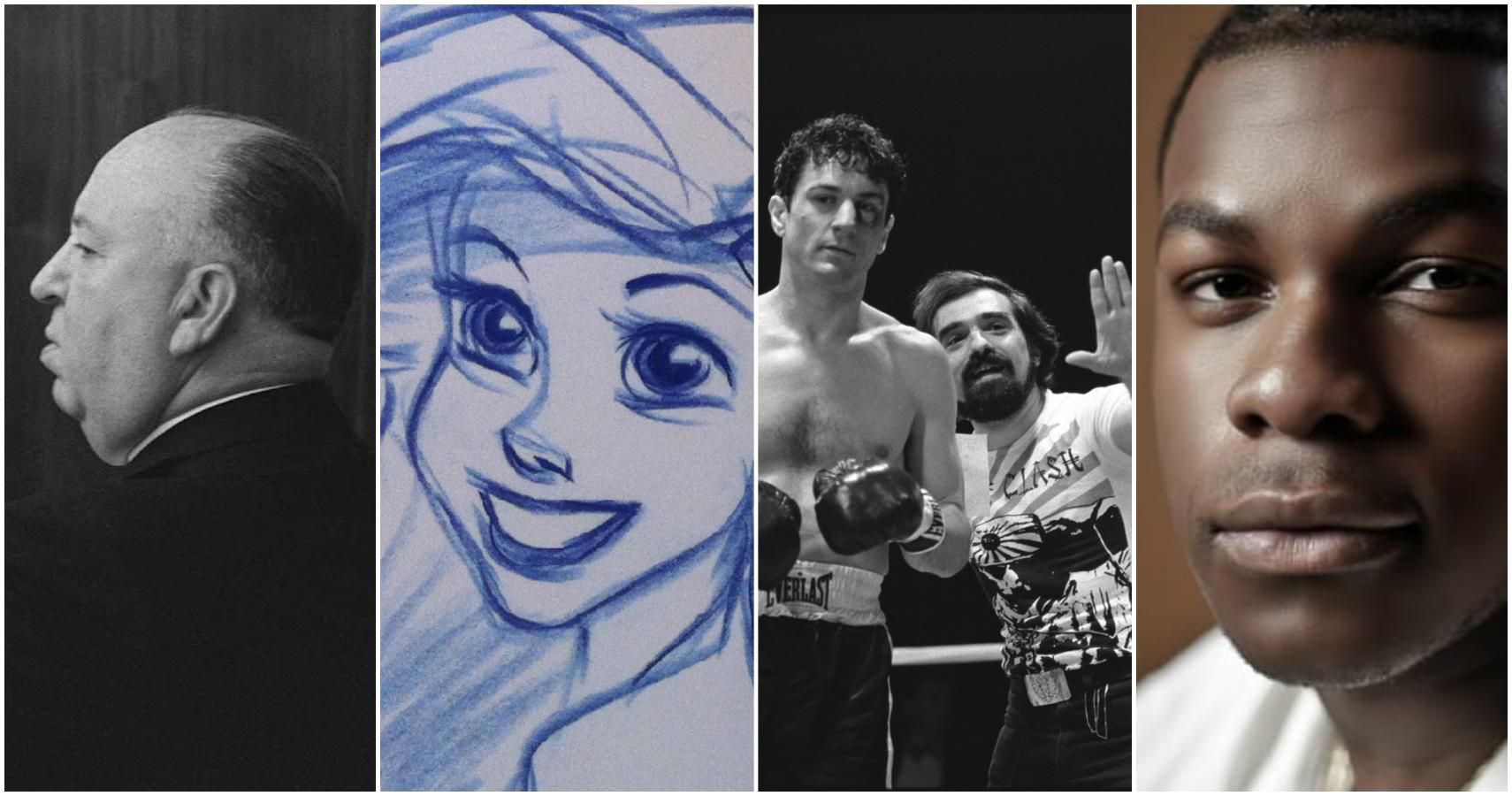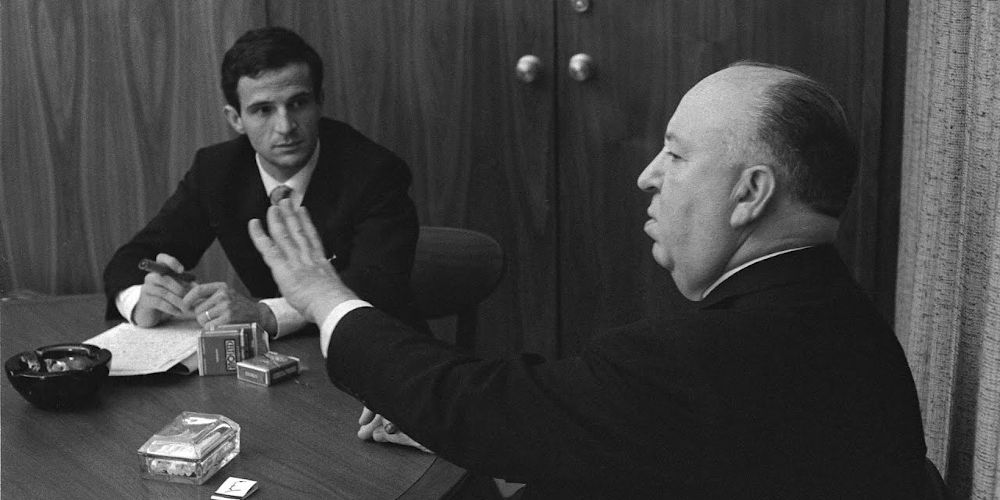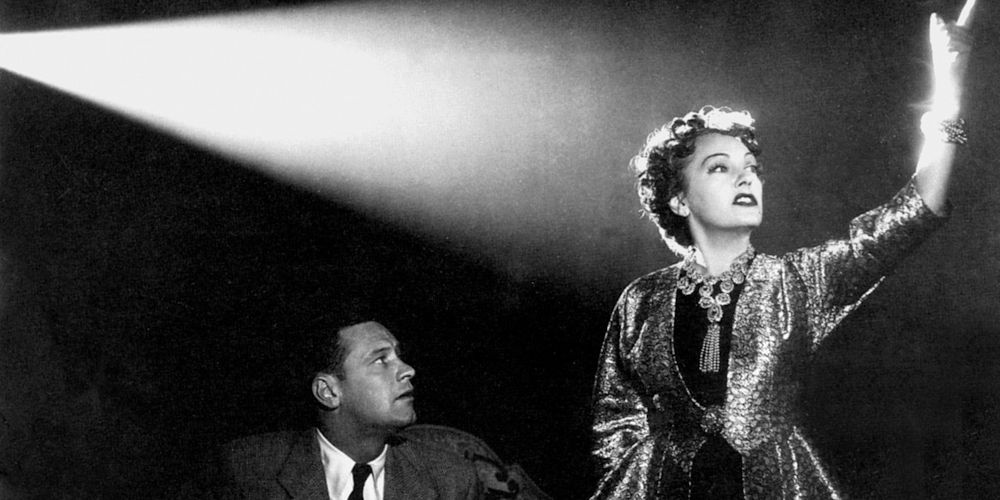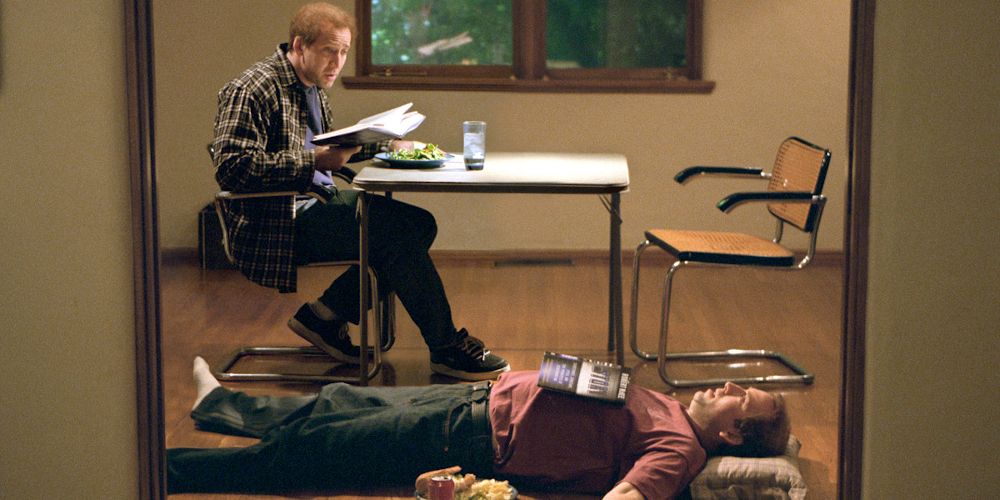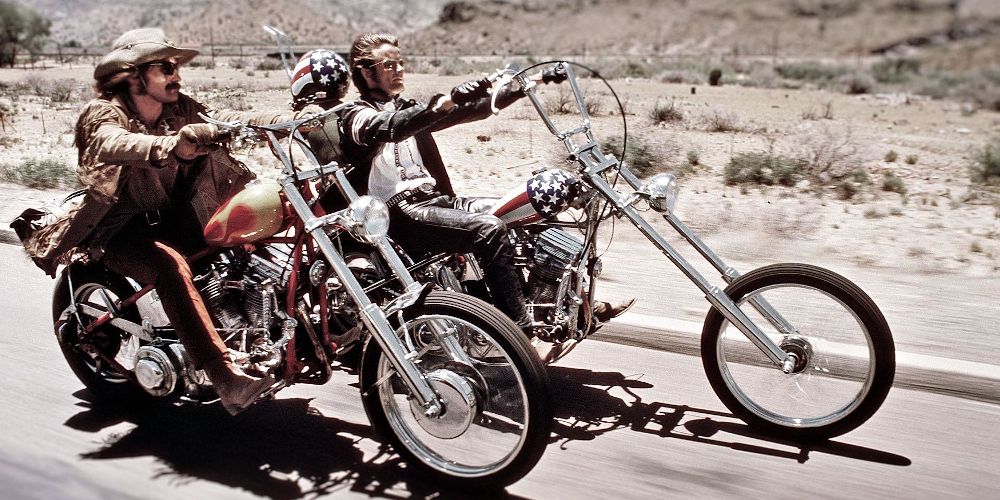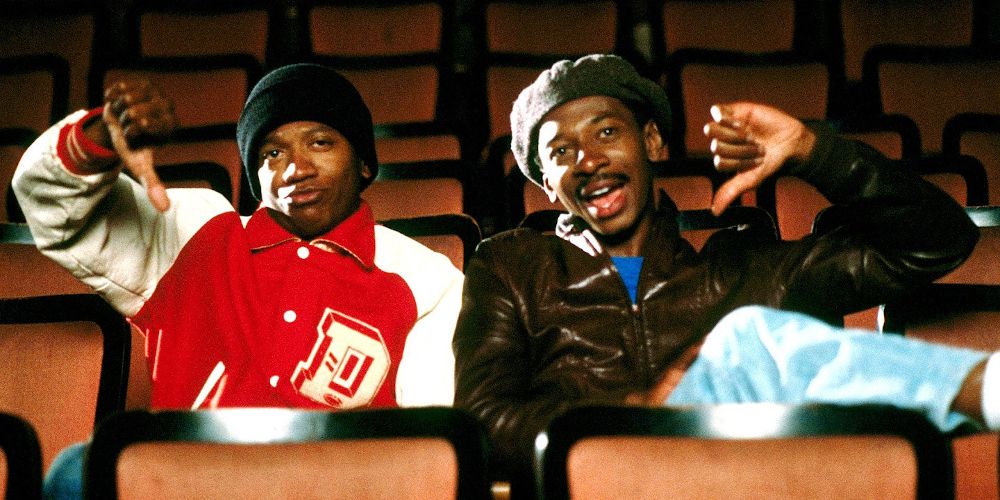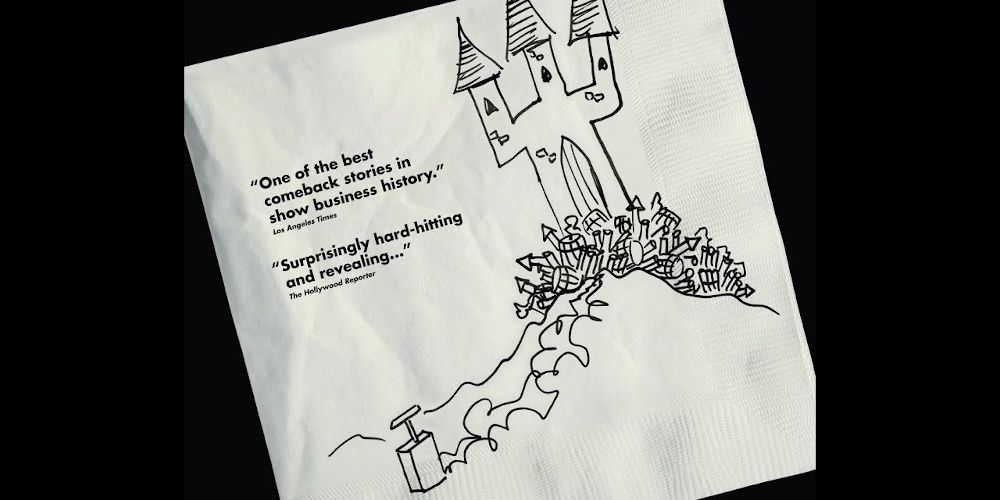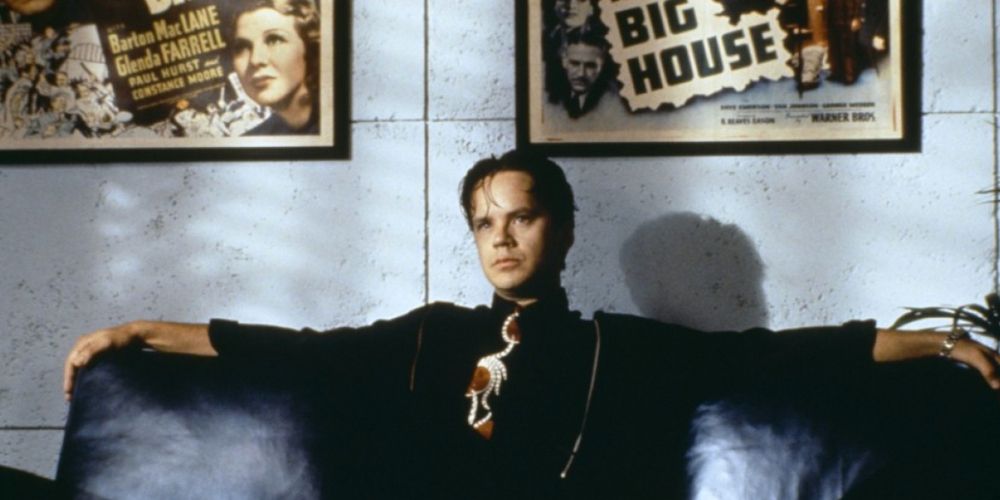The film industry represents a complex maze of artists, writers, financiers, cinematographers, and innovators. Making movies is hard work. Thanks to technological advancements, anyone can make a move these days using their smartphone and editing software. However, getting a film produced and distributed – even independently – can be an expensive, daunting venture. The cutthroat nature of the film industry doesn't help matters.
Hollywood is both the most profitable and the oldest national film industry in the world. Filmmakers and screenwriters often turn to the industry itself as source material for their features. They delve into both the beautiful and the terrible aspects of the institution that makes it possible for billions of people to see their movies. Whether through documentary-style storytelling or fictionalized chronicles, these films attest to the equal parts problematic and wondrous nature of movie-making.
Documentary: Hitchcock/Truffaut (2015)
British director Alfred Hitchcock and French director François Truffaut are responsible for modernizing filmmaking techniques and storytelling during the mid-20th century. With their uncompromising artistic visions, the directors went on to influence scores of contemporary filmmakers, including Martin Scorsese, Richard Linklater, and Wes Anderson.
Kent Jones's documentary is inspired by the book of the same name published by Truffaut in 1966. Over eight days in 1962, the two directors engaged in long, philosophical discussions about filmmaking – all later compiled in the book. Hitchcock/Truffaut explores the creative dynamic at the heart of the cinematic experience.
Movie: Sunset Boulevard (1950)
Set on the iconic Hollywood street of the same name, Sunset Boulevard pays homage to film's Silent Era by telling the story of an aging actress struggling to adapt during the transition to talkies – or sound films. Directed by Billy Wilder, the film stars Gloria Swanson (a former silent star in real life) as Norma Desmond, a delusional actor unable to accept her heyday is over.
William Holden co-stars as Joe Gillis, a struggling screenwriter who gets caught up in Norma's plot to make a return to the screen. Considered a masterful cinematic experience, Sunset Boulevard highlights the more nefarious, self-serving characters who framed early Hollywood.
Documentary: The Kingdom of Dreams and Madness (2013)
Animated films are a major component of the film industry. The Kingdom of Dreams and Madness tells the story of Studio Ghibli, the Japanese company responsible for producing works by internationally renowned directors like Hayao Miyazaki, Isao Takahata, and Toshio Suzuki. The documentary, directed by Mami Sunada, showcases the creative spirits of these groundbreaking animators.
It follows Miyazaki as he works on his 2013 film The Wind Rises, a historical biopic about Jiro Horikoshi, the designer of fighter aircraft used by the Japanese during World War II. Instead of digging too much into the technical or financial aspects of the film industry, The Kingdom of Dreams and Madness weaves a poetic narrative about passionate, driven artists.
Movie: Adaptation. (2001)
Spike Jonze's postmodern tribute to writing screenplays is hilarious, insightful, and multilayered. Charlie Kaufman co-wrote the screenplay with his twin brother Donald, which is inspired by Kaufman's struggle to adapt Susan Orlean's book The Orchid Thief while suffering from severe writer's block.
Nicholas Cage plays the fictionalized Charlie and Donald Kaufman in the movie, acting alongside Merlyn Strep as Susan Orlean and Chris Cooper as Joe Laroche - the subject of Orlean's book. As Adaptation. progresses, the lines between cinematic invention and real life are completely muddled, giving audiences intimate access into the mind of someone trying to develop a successful screenplay.
Documentary: A Decade Under The Influence (2003)
The mid-'60s to early '80s gave rise to a movement known as New Hollywood, where a generation of young, experimental filmmakers altered the cinematic landscape. Instead of studios, these directors insisted on calling the shots; they were willing to bypass production companies and break the rules to make the movies important to them. Eschewing the classic Hollywood happy ending, these directors sought to tell messy stories instead of resolved ones.
A Decade Under The Influence includes extensive interviews with these filmmakers, including Martin Scorsese, Francis Ford Coppola, William Friedkin, Robert Altman, and Peter Bogdanovich. The film's title comes from John Cassavetes's intense 1974 character study A Woman Under The Influence.
Movie: Hollywood Shuffle (1987)
Hollywood Shuffle is a criminally underrated comedy that tackles the well-founded claims about Hollywood being way too white. Directed, co-written, and featuring a starring performance by Robert Townsend, the movie provides a semi-autobiographical look into Townsend's experiences as a black artist in Hollywood.
Townsend's co-writer is Keenan Ivory Wayans, who also acts in the film. Hollywood Shuffle follows Townsend's character Bobby Taylor as he aspires to become a successful actor. Instead, Taylor deals with one misinformed white casting director after another, all of whom typecast and stereotype him as a black man.
Documentary: Waking Sleeping Beauty (2009)
Disney's animated features continue to profoundly impact the mainstream moviegoing environment. Between the late '80s and the late '90s, Walt Disney Feature Animation experienced a renaissance. After the success of live-action and animated mash-ups like Who Framed Roger Rabbit, the animation studio really took off with the release of The Little Mermaid. Other iconic animated films like Beauty and the Beast, Aladdin, and The Lion King followed suit, earning the company tons of money and recognition.
Waking Sleeping Beauty commemorates the studio executives, writers, animators, and big ideas people involved with making these films a reality. While many Disney animated features have received due criticism for whitewashing their source materials, these movies earned the company enough money to make it a major name in contemporary film and television.
Movie: Tropic Thunder (2008)
Believe it or not, Ben Stiller's buddy war comedy is a smart, accessible critique of the film industry. A film within a film, Tropic Thunder follows a group of actors making a movie about the war in Vietnam. During production, the film's director dies – leaving the actors deep in the jungle to fend for themselves. Tropic Thunder parodies war movies, but at its core, it skewers actors who take themselves and their craft way too seriously.
The movie also highlights the inherent racism and white privilege running rampant in the industry with Robert Downey Jr.'s portrayal of Australian method actor Kirk Lazarus. Lazarus undergoes a pigmentation altercation in order to play a black character in the war movie – a risky attempt to make fun of white actors who play people of color.
Documentary: They've Gotta Have Us (2020)
Released on Netflix by Ava DuVernay's distribution collective Array, They've Gotta Have Us is a three-part documentary series tracing the history and development of black cinema. Released in conjunction with the 2020 Academy Awards, the documentary uses interviews with black artists invested in filmmaking since the dawn of cinema in order to forge a path toward true inclusivity in the industry.
They've Gotta Have Us looks past the #SoWhite awards circuit, digging into the innumerable films, names, and faces making vital black cinema for decades. The documentary makes the case for putting more people of color not just in front of the camera, but behind it.
Movie: The Player (1992)
Robert Altman's satirical black comedy starring Tim Robbins provides a scathing criticism of the self-involved and self-serving financiers whose studios produce the movies people flock to theatres to see. Robbins plays an executive, Griffin Mill, in charge of deciding the fate of untold projects and screenplays.
When Mill begins receiving death threats, he believes they originate from a screenwriter whose pitch he rejected. The Player is equal parts compelling character study and ensemble drama, featuring cameos from over 60 celebrities. It paints a grim portrait of the film industry's future.

